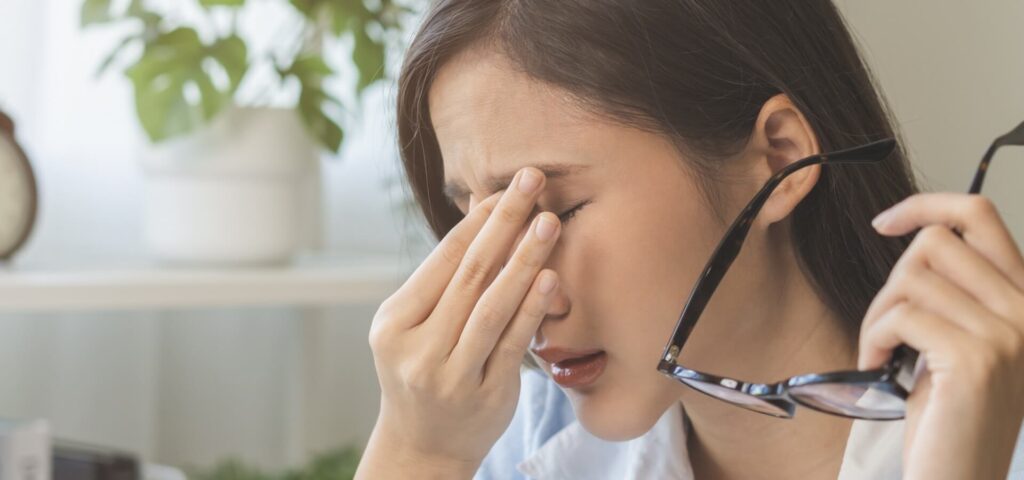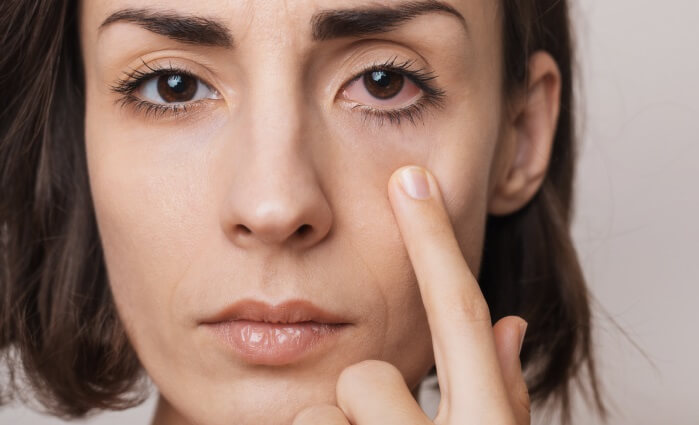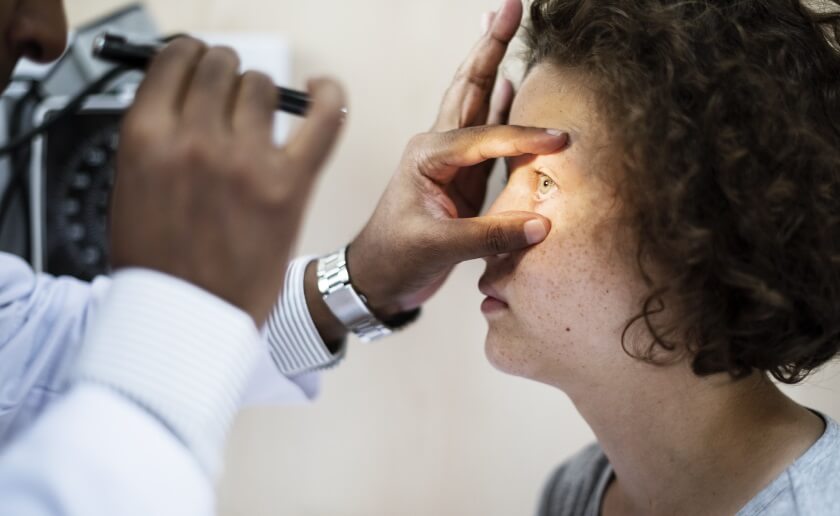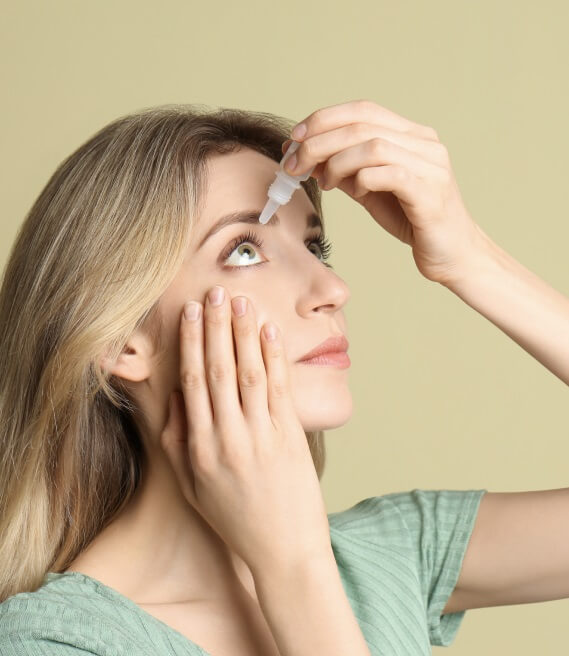
Dry eye is a condition that occurs when your eyes aren’t making enough tears, or the tears you do produce are of poor quality. Your eyes rely on tears to keep them lubricated, and without sufficient tears to moisten your eyes constantly, you can be left with a feeling of irritation. Symptoms of dry eye include:
It sounds odd, but dry eye can also cause your eyes to water excessively.


If you have any of the symptoms we’ve described or a combination of symptoms, the best thing is to come and see us for an eye examination. If the optometrist believes you have dry eye, they will talk to you about treatment and management techniques.
Eye drops are the most common and easiest form of treatment for dry eye. Not all eyedrops are suitable for dry eye, so we recommend you ask about dry eye drops in our practice to ensure you get a reliable brand that will work for you.
There are also things you can do or avoid at home to help with dry eye management. If you spend a lot of time looking at a screen, make sure you take regular screen breaks and blink. Using a humidifier can help make the air less dry, which can exacerbate dry eye.
A warm compress can help to alleviate symptoms and encourage the glands in your eyelids to produce more oil. If you usually wear contact lenses, you may find that switching to glasses helps.
It’s important to treat dry eye, as your eyes can be more prone to infection if it’s left untreated. If you think you may have dry eye, contact us to arrange an appointment so our optometrist can make sure it’s nothing more serious and give you advice on how to manage it.

46 Darkes Lane,
Potters Bar EN6 2HW,
United Kingdom
Monday to Friday - 9:00am to 5:30pm
Saturday - Closed
Sunday - Closed
© All rights reserved. Website designed and developed by OptiCommerce.